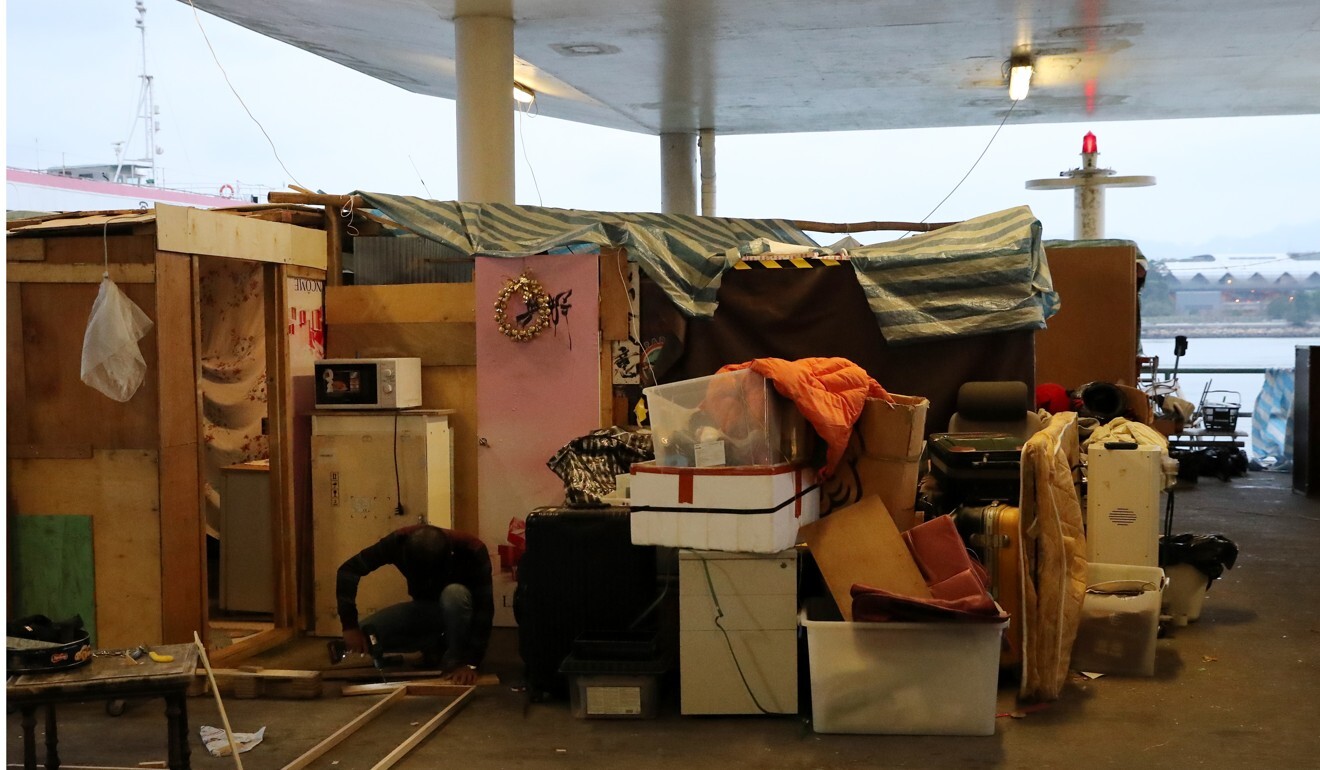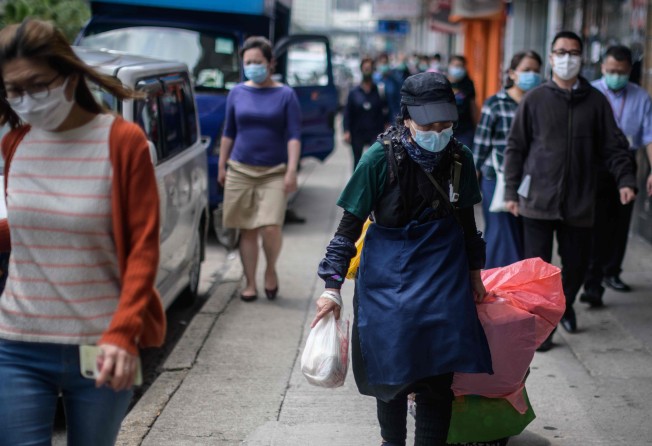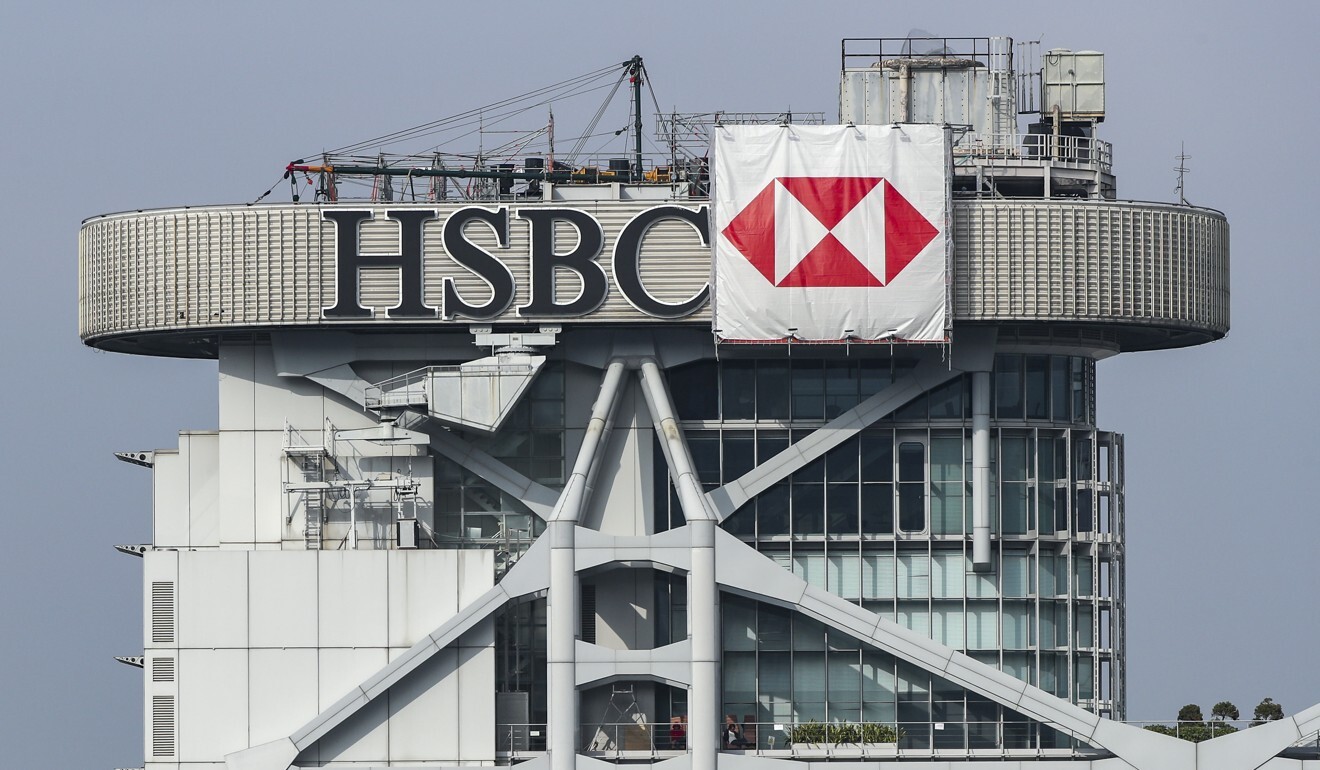
Coronavirus: Hong Kong’s business sector puts its efforts into the fight against pandemic
- City’s business sector has come up with an array of relief measures to support those in need, especially the underprivileged and medical sector workers
- Some are dishing out generous donations, while others are providing food, protective gear, accommodation and home-testing kits for the community

Hong Kong’s business sector has channelled its efforts into the community’s fight against the coronavirus, with the pandemic battering people from all walks of life and driving many to despair.
From dishing out generous donations to providing food, protective gear, accommodation and home-testing kits for the community, the city’s business sector across the spectrum has come up with an array of relief measures to support those in need, especially the underprivileged and medical sector workers.
Among them is HSBC, which is to donate more than HK$60 million (US$7.7 million) to benefit 600,000 people after its controversial decision to cancel dividends angered many shareholders.
Those with lower incomes, or without work, are more in need of support as Hong Kong’s unemployment rate shot up in March for the sixth straight month, hitting 4.2 per cent, the highest it has been in more than nine years. The number of the unemployed increased to 162,200 in March from 134,100 in February.
The banking giant has teamed up with four charity partners – the Hong Kong Council of Social Service (HKCSS), Food Angel, the Hong Kong Red Cross, and St James’ Settlement – to provide food and hygiene assistance to those in need, especially various disadvantaged groups.

“The donation is intended to provide far-reaching support to some 600,000 people, including senior citizens and Hongkongers from various vulnerable communities,” HSBC said in a statement on Wednesday.
The donation covered 65,000 food packs, 13,000 hygiene kits distributed via school networks, part-time job opportunities, and first aid and communicable disease prevention training for more than 43,000 underprivileged people.
“As Hong Kong battles the economic and social fallout of the Covid-19 outbreak, we are reaching out to our communities to assist those most in need,” Peter Wong Tung-shun, deputy chairman and chief executive of HSBC, said.
The bank has put on hold plans to cut some 35,000 jobs as part of an overhaul designed to reduce annual costs by US$4.5 billion, because of the “extraordinary impact” of the pandemic.
Standard Chartered Bank has donated HK$10 million to HKCSS for families living in subdivided units. About 2,000 households will each receive a one-off subsidy of HK$5,000 to help pay the rent.
Mary Huen, Standard Chartered Hong Kong’s CEO, said the bank hoped to help those living in subdivided flats ride out the crisis, as they were among the hardest hit facing unemployment or pay cuts.
“Our staff will also become online volunteer tutors and carers for the children of the subsidised families, remotely supporting the underprivileged to face the unexpected challenges,” she said.
However, for many homeless Hongkongers, nothing seems more important than having shelter, especially after McDonald’s suspended its dine-in services from 6pm to 4am for 14 days.
Airy Stay’s guest houses are among those that came to the rescue of the homeless this month, offering nine rooms in a Tsim Sha Tsui flat for homeless concern group Christian Concern for the Homeless Association (CCHA) to shelter people for three months. It would need to forgo about HK$160,000 in rents for the move.
Anthony Hui Man-fung, 36, Airy Stay’s owner, said he was concerned whether there would be a surge in the number of the homeless after McDonald’s move.
“A friend suggested that I could help the homeless as we had some vacant rooms. Soon, I met CCHA and we rolled out this programme to help them,” he said.
He saw a lot of people being forced onto the streets after they lost their jobs, which made him feel he was doing the right thing in helping them in their times of distress.

“It doesn’t matter whether my business is making money or not, I just hope to offer them some help to ride out the difficulty,” he said.
Hui acted even though he was worried about his business, which has dropped by more than 70 per cent because of the impact of the pandemic and anti-government protests on tourism. “My business is also facing a crisis,” he said.
Ricky Ho Wai-ki, CCHA’s hostel supervisor, said he feared there would be a rise in the number of homeless people as unemployment continued to rise.
He said the 120 lodgings provided by CCHA to homeless people were already full, and they desperately needed more businesses to offer free rooms or housing to cope with the crisis.
“We hope to line up more guest houses to take part in this scheme. We’ll also connect with some churches to offer sponsorship to these businesses and provide support to the homeless so they could again become self-dependent,” he said.
Pentahotel Hong Kong, Kowloon, a hotel arm of New World Development, has also offered free lodgings to about 300 medical professionals as a token of appreciation for their services.
In collaboration with insurer Prudential, start-ups and health care providers, Hong Kong-based genetic testing company Prenetics has introduced affordable home coronavirus testing kits, under a no-profit initiative called Project Screen.
The kits are sold at the cost price of HK$985 each and users are expected to cough and spit into test tubes. Their sputum samples will then be picked up by trained staff within 24 hours for tests to be conducted at the company’s labs. Users will be notified of results within 24 hours.
Prudential has offered to subsidise HK$300 for each testing kit for 30,000 health care workers and their families – meaning they will need to pay only HK$685.
“Prudential is proud to be a catalyst in this initiative … health care workers are the heartbeat of our medical system,” Priscilla Ng, Prudential’s chief customer and marketing officer, said.
Danny Yeung Sheng-wu, CEO of Prenetics Group, said the home-testing kits could offer a convenient and affordable way for people to get tested instead of paying HK$3,000 in testing fees at private hospitals.
“We wanted to make an easy, accurate and safe testing kit that could be used at home … We are doing this to help the Hong Kong community. Testing is becoming more and more important for the community as we get back to normal life,” he said.
Many senior employees of big corporations also donated parts of their salaries to the fight against the pandemic.
Baring Private Equity Asia will create a US$5 million relief fund to support local communities affected by the pandemic, and Jean Eric Salata, its founding partner and CEO, along with four other investment committee members plan to contribute 100 per cent of their annual salaries.
“We think that it’s important to give back and show solidarity with the community when it needs our support,” Salata said. “We will be focusing in Hong Kong on income replacement for low-income families that don’t qualify for government unemployment support.”
The city’s rail operator, MTR Corporation, also said its chairman and board members would donate a month’s director’s fees, while its CEO and executive directors would donate 20 per cent of their salaries for six months to help people with pressing needs.